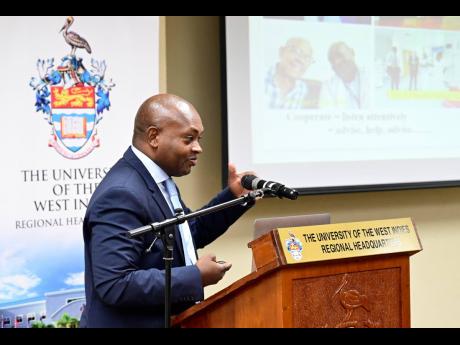WHO morbidity, mortality targets remain out of reach
The World Health Organization’s (WHO) 2019 challenge to reduce the morbidities and mortality related to environmental disease by 50 per cent before 2030 remains almost impossible to achieve, according to Professor Dabor Resiere of the University Hospital of Martinique.
These range from outbreaks of vaccine-preventable diseases like measles and diphtheria, increasing reports of drug-resistant pathogens, growing rates of obesity and physical inactivity to the health impacts of environmental pollution and climate-change and multiple humanitarian crises.
In 2019, the WHO noted that nine out of 10 people breathe polluted air every day, citing air pollution as the greatest environmental health to risk. It warned then that microscopic pollutants in the air could penetrate respiratory and circulatory systems, damaging the lungs, heart and brain, killing seven million people prematurely every year from diseases such as cancer, stroke, heart and lung disease. Around 90 per cent of these deaths were in low- and middle-income countries, with high volumes of emissions from industry, transport and agriculture, as well as dirty cook stoves and fuels in homes.
Delivering the keynote address during last Thursday’s One Caribbean Solutions Conference at The UWI Regional Headquarters, Mona campus, Resiere spoke on the topic, ‘One Climate, One Health: Medical/Scientific Cooperation and Climate Resilience in the Caribbean’.
He pointed out that, despite the dire outlook, there was still hope in light of the fact that ongoing research is accelerating new medical and epidemiology data, improved clinical data, new technologies, new interdisciplinary co-operation and new drugs, among other advances in medical science. However, he served notice that the One Health approach was essential for addressing the pressing environmental challenges in the Caribbean.
Interdisciplinary approach
One Health is a collaborative, multi-sectoral, and transdisciplinary approach – working at the local, regional, national, and global levels – with the goal of achieving optimal health outcomes recognising the interconnection between people, animals, plants, and their shared environment
“It is high time for to come together collectively and embrace and interdisciplinary approach that can ensure the well-being and sustainability of all species and ecosystems impacted by these challenge. Medical and scientific co-operation should be the key response to this problem,” Resiere argued.
He insisted that, in order to effectively combat environmental issues, the region must champion multi-disciplinary strategies.
“This entails establishing a robust regional network and fostering medical and scientific co-operation dedicated to addressing and treating environmental pathologies that threaten the delicate balance of the Caribbean environment,” Resiere further explained.
Meanwhile, Head of Advocacy and Partnerships, Commonwealth Students Association Christina Williams advocated for greater inclusion of young people in the important decision-making issues at the regional level.
“We don’t only want to be beneficiaries. We have the capacity to be meaningful stakeholders, partners and to also have our own initiatives. And so, I would ask for greater support for youth leadership, greater support for youth-led advocacy and also support for youth mobility in terms of partnerships across the region.”
Williams noted that the earlier students from across the region start working together, by the time they are elevated to governance and diplomatic levels, the region would benefit from their collective knowledge and expertise.
“If it is that we practise cultural integration, cultural renaissance, cultural solutions at the higher levels – government, diplomacy, etc. I think we would be able to achieve that for climate-change and health.”

